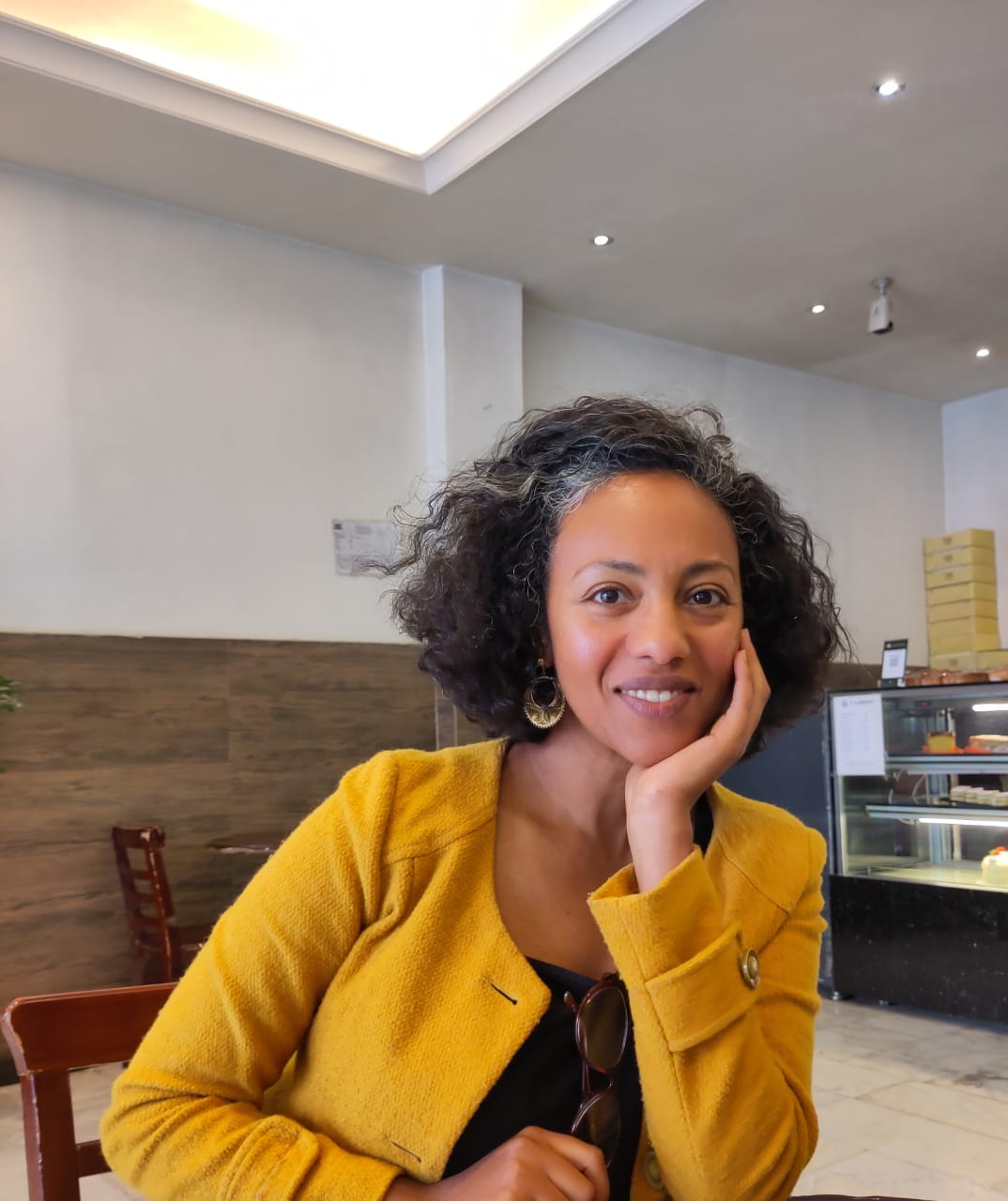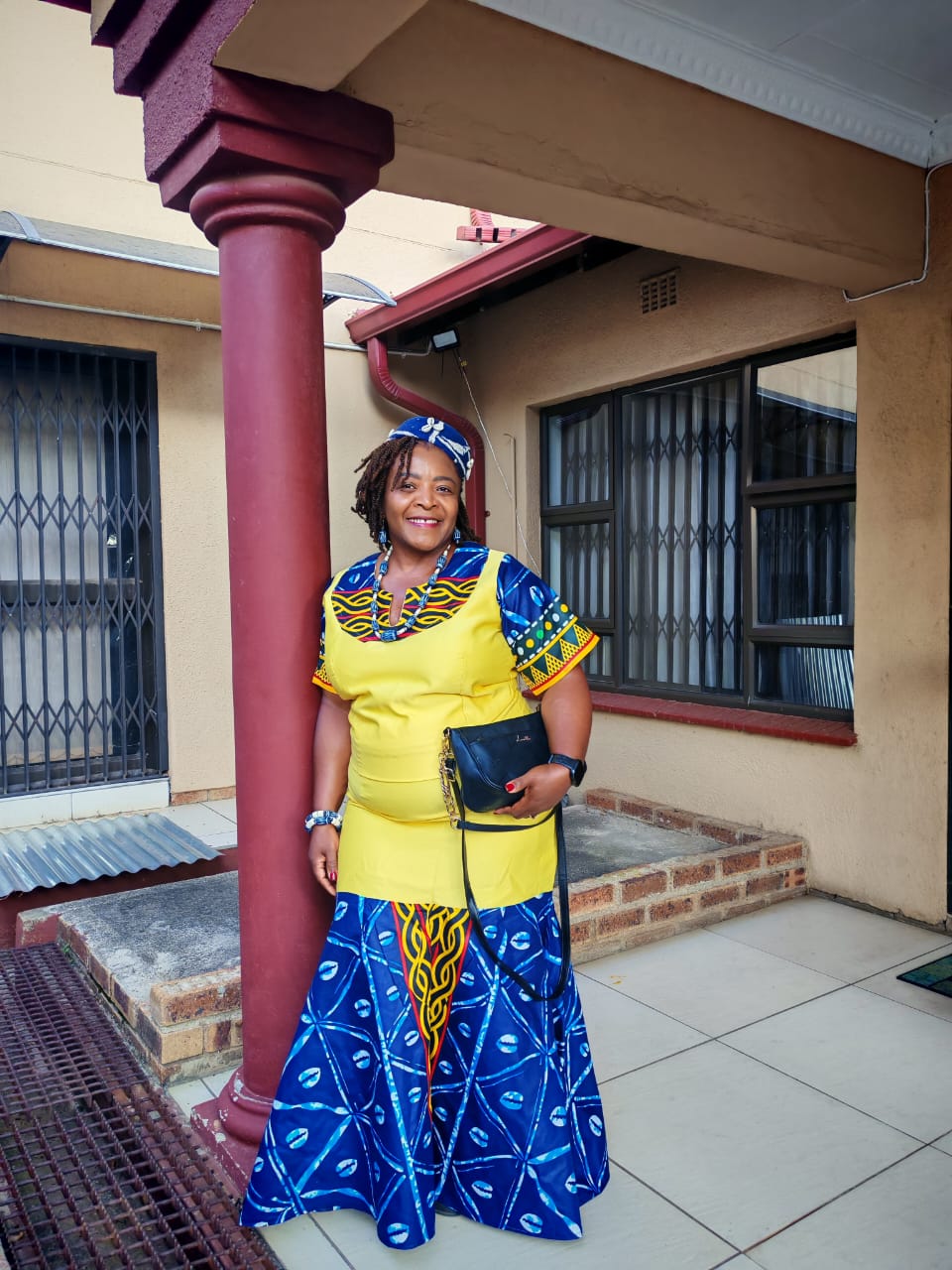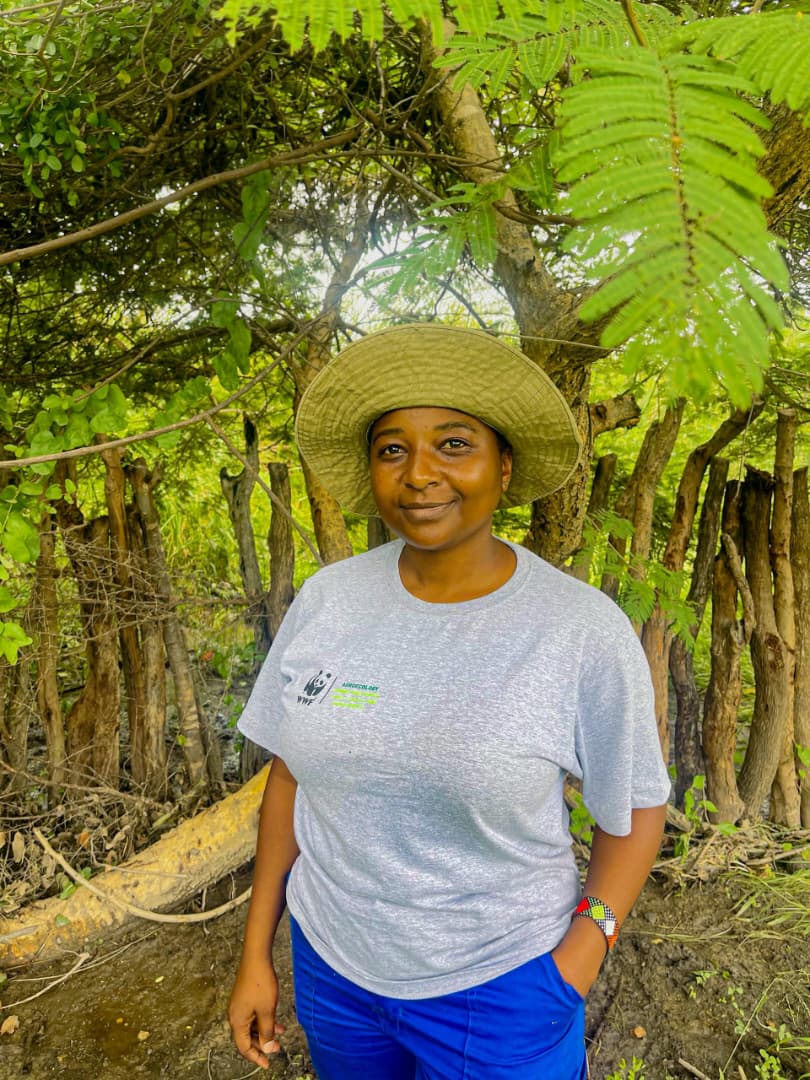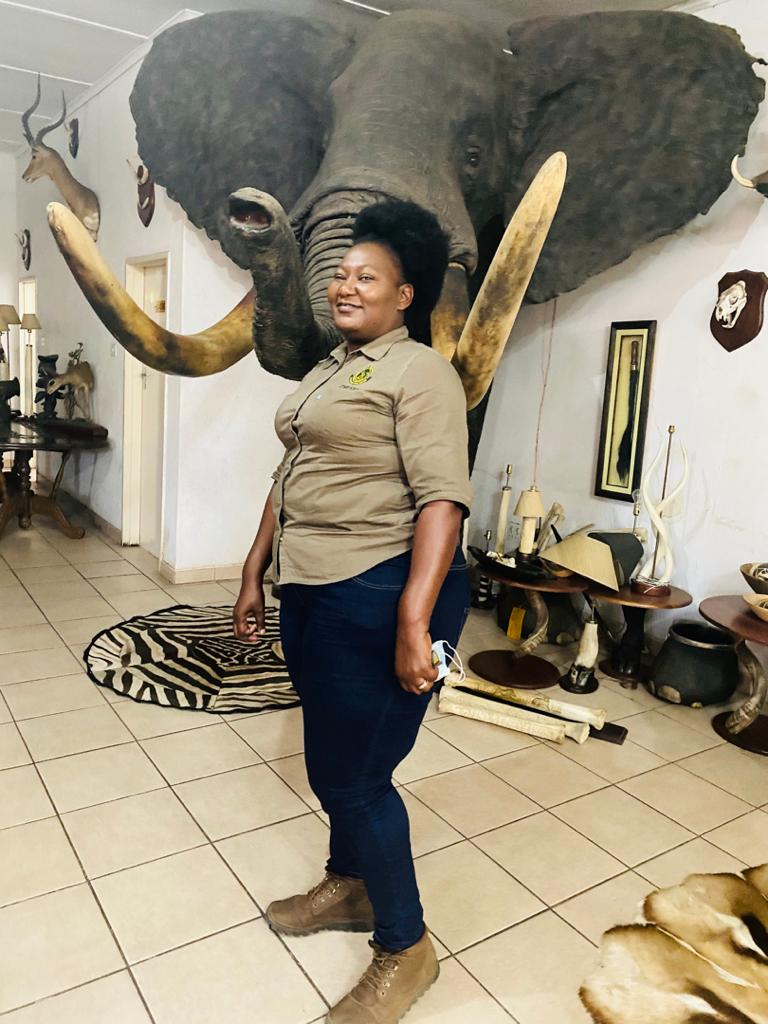This interview is part of a series profiling the stories of the 2024 WE Africa leadership programme fellows, African women in the environmental conservation sector who are showing up with a strong back, soft front, and wild heart.
***
Settling for the “conventional idea of success” may have once been an appealing option for Milha Desta, but that time has long passed. Now, she’s restless—searching for spaces where she can push boundaries, challenge norms, and create tangible change.

“I sometimes wonder—what if I’d been born somewhere like Norway?” she muses. “Would I just go to work, meditate, and feel content because everything’s already running smoothly?"
But Milha wasn’t born in Norway. She was born in Ethiopia—a place that needs bold ideas and innovation. And she’s not waiting for someone else to step up. She’s answering the call.
***
Milha grew up with two sisters who were six and nine years older, and, in her late teens, her older brother came into her life. Her parents were strict, but they were also busy.
“I had to adapt to being by myself, and now I see it as a source of power. I don’t need to have people around me to have a good time,” she says.
By the age of three, she was already reading and writing. So when she started school at five, learning the alphabet all over again felt…boring. “I spent most of my time daydreaming,” she admits.
Attending a Catholic school while being raised in a strict Muslim household created a quiet tension. “I wished I could just fit in, but I always felt like I didn’t quite belong at home or school,” she says.
In her early twenties, Milha went on what she calls a “quest for meaning”. She explored different faiths in search of answers and, eventually, realised that organised religion wasn’t for her. At first, she outright rejected it, felt antagonistic toward it even. But over time, her resistance softened.
“Now, I respect it. I’ve come to terms with the fact that, culturally, I’m a Muslim. It has given me my values, and the culture gives me meaning and connection to people.”
***
Milha didn’t set out to become an environmentalist. She was a science geek who was always curious and loved the outdoors. Her first real encounter with the field was in high school when she heard about the ozone layer thinning. Then, she studied earth sciences (geology) and, after graduating, did an internship at the UN Environment Programme in Addis, which eventually led to her full-time employment as a National Environment Officer. In this capacity, she was fully exposed to the world of environmentalism and loved it. “I didn’t exactly choose this field at first,” she says, “but I’ve chosen it again and again since.”
***
For the first fifteen years of her career, Milha worked in environmental policy. The money was okay, but the work was not fulfilling. It felt small.
“I knew I could do something more impactful outside of that space. I’d wake up in the morning, knowing I had to go to work, and just… ugh. I could feel myself changing. Like I was turning grey,” she says.
A disenchanted Milha walked away from formal employment to start an organisation that she felt would create an actual impact.
It began as a grassroots movement. Milha and a group of volunteers had spent years cleaning up a polluted river, educating communities on waste disposal, pressuring factories to change their practices, and pushing for stronger government policies. But having spent years in the policy world, she knew how painfully slow change could be.
“People say, Oh, I’ll fix it from the inside. Then, once they are in, they realise they are too small to matter,” she says. “And then there are the corporates that roll out ESG reports that are full of promises. But if you dig deeper, it’s all just greenwashing. Because, in the end, their purpose is to make money for shareholders.”
That’s where Milha’s model comes in. Instead of begging corporations to do better, why not build businesses that aren’t just claiming to be sustainable but are designed, from the ground up, to restore the planet and make a profit?
“Look at something as basic as packaging,” she says. “Every single one of us uses it every day, and plastic packaging is one of the biggest drivers of pollution. But there are real alternatives—materials that don’t destroy the planet.”
I ask her if she’s ready for the inevitable pushback.
“You can never have the whole plan,” she says. “My last three and a half years working in an investment company showed me how businesses start. It’s hard work, but it’s not rocket science. I know the pushback may come, and I’ll handle it when it does. But that’s not where my energy is right now. My focus is on who I’m helping and what I’m helping.”
First, she plans to prove the concept. Then, she’ll scale.
“I want to use my nonprofit to launch these businesses. Over time, they will become fully independent. We’ll continue creating and scaling these ventures and eventually encourage them to do the same for others. But first, we need to refine the model and prove its success,” she says.
Potential ventures include sustainable packaging companies and food forests. The idea for the latter started with the high bio-diversity, dense native forest Milha planted for a private company in the heart of Addis Ababa.
“One of Ethiopia’s major environmental problems is land degradation, so if we can restore lands with these forests and produce food such as honey and spices, then it’s a win-win,” she says.
But Milha’s vision for a sustainable future goes far beyond helping to build sustainable businesses. Just before COVID, she started a monthly biking event in Addis to raise awareness about sustainable mobility and show how much the city could benefit from non-motorised transport.

“When I went to school in the UK for my Master’s, I realised how expensive it would be to get around, so I learned how to bike. And it became my solace. Whenever I felt overwhelmed, I’d hop on my bike, ride through a nearby park, and come back feeling refreshed.”
But coming back to Addis, biking as a woman was different. “It wasn’t common, and I got horrible comments,” she recalls. “But I knew that whenever I biked to work, I was in a much better mood than when I drove. So, I thought, we need to get more people on bikes—once they felt it, they’d understand.”
That idea led her and a friend to start the Anbesa Bike Ride—Anbesa meaning “lion” in Amharic.
“We actually wanted to start it as Critical Mass from the beginning, but it was really political at the time.”
So instead, they kept it simple—just getting people on bikes, riding together, and normalising cycling in Addis. Anbesa Bike Ride has now become part and parcel of the Critical Mass Addis Ababa chapter.
“Every first Friday of the month after work, we get on bikes, blast music and take over the road,” she says with a smile. “It’s a party on wheels.”
And there’s more.
Two years ago, Milha started a personal experiment that has since evolved into a larger movement, inspiring more Ethiopians to take action on waste.
“I wanted to challenge myself to go completely zero-waste for a month. I documented everything to see what was possible,” she explains.
The idea emerged from her work in river restoration, where she saw how waste—especially plastic—was a massive problem. “I don’t believe individuals should carry the full burden of fixing this. But I do believe they can be catalysts for change.”
By tracking her household’s waste, Milha saw what was easy to reduce, what was difficult, and what changes needed to happen at a systemic level. She wanted others to have the same experience and recognise what they should be demanding from businesses and policymakers.
“I don’t love being in the public eye, and that’s why the first one was small. But this isn’t about me—it’s about what we can change together.”
Milha’s Zero-Waste Month Challenge isn’t directly linked to the global Zero-Waste Movement—and that’s intentional. “Many of those movements don’t fit our reality here,” she says. So, she wants to focus on what already works in Ethiopia, particularly the cultural practices that emphasize valuing and recycling resources. And so, her version of the Zero-Waste Month Challenge is about knowledge, celebrating good practices, and collective power.
“A lot of people don’t even know that most of their clothes are made of plastic,” she points out. “It’s not just about individual responsibility—it’s about understanding the system because this is political. What can you, as a citizen, ask for? And if we come together as a collective, how much power can we wield?”
Her long-term vision is to build a community that can challenge the status quo. “Take water, for example,” she says. “Everyone buys bottled water because we don’t trust what comes out of the tap. But who benefits from that? The companies selling bottled water. Tap water should be safe to drink. It’s a basic right, but we don’t even ask for it.”
“And now, we’ve been conditioned to think bottled water is good. But really—how do you even know it’s actually good? There’s no real oversight. You just trust it because you’ve been told to trust it.”
Milha is not challenging the way things are for the sake of rebellion; no, she is doing it because she sees how much better they could be. At the same time, she doesn’t see herself as someone who has to lead every fight. “If someone else is already doing it, and they’re doing it well, I don’t feel like I need to step in. I’d rather be where I’m needed,” she says.
***
Milha has spent much of her life intentionally defining who she is outside of the codes and expectations she was taught to follow. In the past year, the WE Africa fellowship has deepened the lessons she has learnt, given her the courage to act on her intentions and own her authentic self.
“Close friends and family members have often called me robotic—like I don’t show emotion. But I finally gave myself permission to be vulnerable. And care less about what others think. My self-actualisation became more important than keeping up a composed facade.”
For so long, Milha believed that a professional must always appear to have it together. Not that she doesn’t value composure—she does a lot of meditation, and one of the core tenets is not reacting to everything. “I feel my emotions, but I decide how to react,” she says.
But does this idea of professionalism mean constantly maintaining a mask? Does she have to be stoic to be taken seriously? That’s what she’s letting go of.
And maybe this is precisely the time to do it—because the kind of work she has been called to do doesn’t just need strategy. It needs heart.
***
The following statement was written and shared by Milha Desta during her graduation from the WE Africa Leadership Program in December 2024:
What if I shine?
What if my voice, with all its honesty and courage, reaches the ears of those who need it most, at the exact moment they are ready to hear? What if the work I pour my heart into doesn’t just accomplish, but uplifts others—bringing joy, prosperity and meaning to every person involved? What if my businesses are about growth, and about protecting the rivers, the forests, and the mountains that give us life? What if they are the spark that reignites the dead rivers, that breathes vibrancy into communities? What if, by shining, I inspire not only success but a deeper connection to the earth and to each other?
Milha Desta, WE Africa 2024 Fellow





